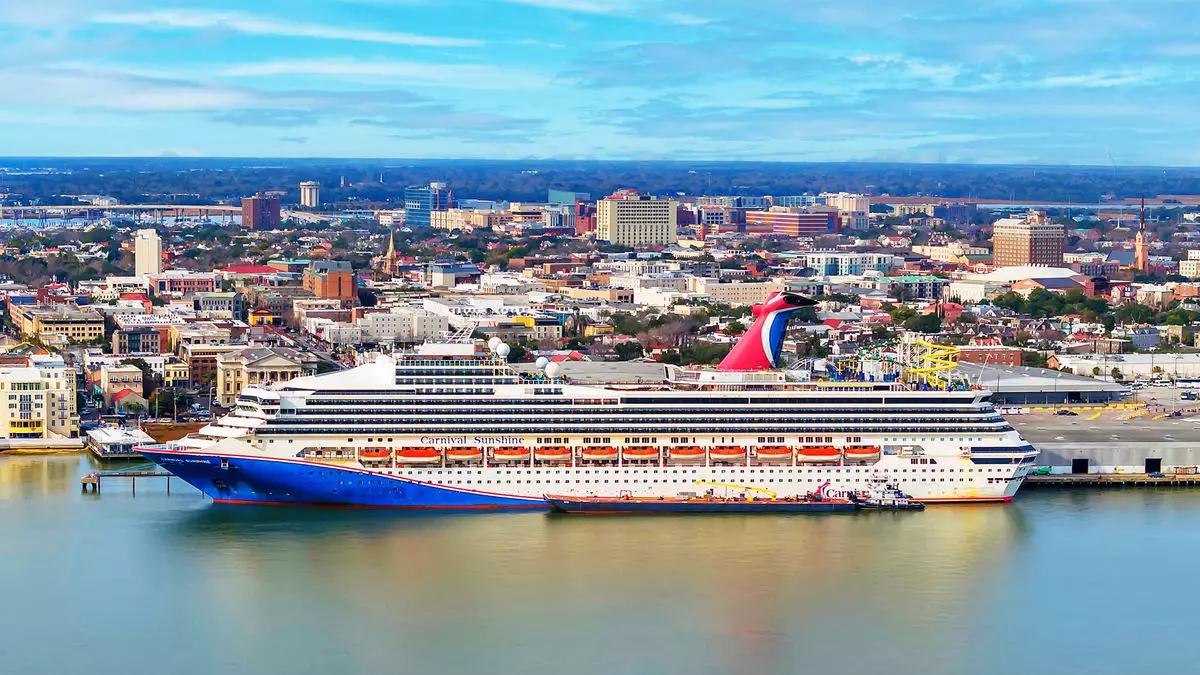The cruise industry is at a pivotal moment, and Carnival Corporation, one of the leading players in the sector, has recently navigated a turbulent landscape marked by economic volatility and geopolitical tensions. As President Trump’s tariffs triggered a trade war with significant implications for global trade, questions loomed over the profitability and stability of cruise lines. Carnival’s CEO, Josh Weinstein, standing at the helm, painted a surprisingly optimistic picture during the company’s earnings call. Despite the stormy seas, he highlighted not just survival but thriving business conditions most surprising given the broader economic environment.
Weinstein conveyed a message of strength, emphasizing that while Carnival is not immune to external pressures, the resilience of consumer behavior is noteworthy. He reported a robust increase in onboard spending—up 10% year over year—which illustrates a steadfast demand among passengers despite external anxiety. His assertion that this year’s Wave season—a period typically marked by strong booking activity—was a resounding success, reflects a narrative of hope that contradicts the pervasive pessimism resulting from economic headwinds.
Booking Trends Amidst Economic Headwinds
Carnival also pointed to impressive figures in terms of future bookings, observing a surge in reservations for 2026 and beyond. Such data suggests that consumers remain eager to embrace travel experiences even when faced with uncertainty. This enthusiasm towards cruising stands in contrast to fears regarding travel advisories and fluctuating market conditions. For Carnival, the advantageous pricing of cruises compared to land vacations serves not only as a buffer against potential market instabilities but also fortifies its appeal to prospective travelers.
However, not all stakeholders within the cruising ecosystem share this buoyancy. Travel advisors often find themselves reading the winds, experiencing a mixed bag of client responses influenced by recent world events. The Cleveland Research Co., which routinely surveys travel advisors, remarked upon a revelation: while the initial phases of Wave season showcased promising trends, the landscape has since become “choppier.” Nearly 27% of travel advisors noted that bookings outperformed expectations, a notable drop from earlier optimism.
This slowing bookings trend signifies that, while Carnival flaunts its success, the broader reality complicates the narrative. The apprehension trickles down from concerns over geopolitical tensions to personal finances, as inflationary pressures and fluctuating stock markets serve as worry stones for potential cruisers.
The Divided Landscape of Luxury vs. Traditional Cruising
One noticeable dichotomy in booking responses is the differentiation between luxury and traditional cruise offerings. While Carnival rides a wave of overall performance, reports indicate that luxury cruise lines are experiencing a more favorable arena. Some agencies are reporting a notable increase in bookings of luxury cruises, which have climbed by as much as 15%. This trend signals that affluent consumers are perhaps less impacted by the uncertainties that deter the average traveler. It’s argued that during turbulent economic times, luxury consumers remain more insulated and willing to invest in experiences that offer escapism and fulfilment.
Conversely, smaller agencies that cater to more budget-conscious travelers express caution. Low confidence in government performance and lingering uncertainties about returning to stability dominate conversations with clients, leading many to hold off on booking future journeys. This hesitation can have a pronounced ripple effect throughout the industry, as reduced inquiries threaten smaller travel agencies that form the bedrock of the cruise booking landscape.
Booking Surges Amidst Unpredictability
In a twist that captures the unpredictable rhythm of this sector, some booking companies have reported unexpected surges in demand. Digital-only platforms, like Cruisebound, have witnessed stunning growth in bookings following erratic months. Their experience highlights the digital transformation of travel planning, revealing that younger consumers, often more tech-savvy and less concerned with traditional media perceptions of travel risks, are prioritizing personable, engaging cruise experiences over conventional land vacations.
Steve Skidgel, head of supply for Cruisebound, shared his observations of a “spectacular” March, characterized by record-setting booking activity. Such experiences suggest that new market dynamics could emerge, driven by the willingness of younger consumers to explore cruising as a viable and attractive option.
In a volatile environment where consumer confidence can shift like the tides, the collective adaptability and resilience of the cruise industry will be critical. The reality for Carnival Corp. and its competitors lies not solely in navigating the storm but understanding that opportunities can arise amid uncertainty. The vitality of the cruise industry, shaped by evolving consumer attitudes and technological advancements, hints at a future that may be less about surviving and more about thriving in an age where unpredictability is the new norm.


Leave a Reply